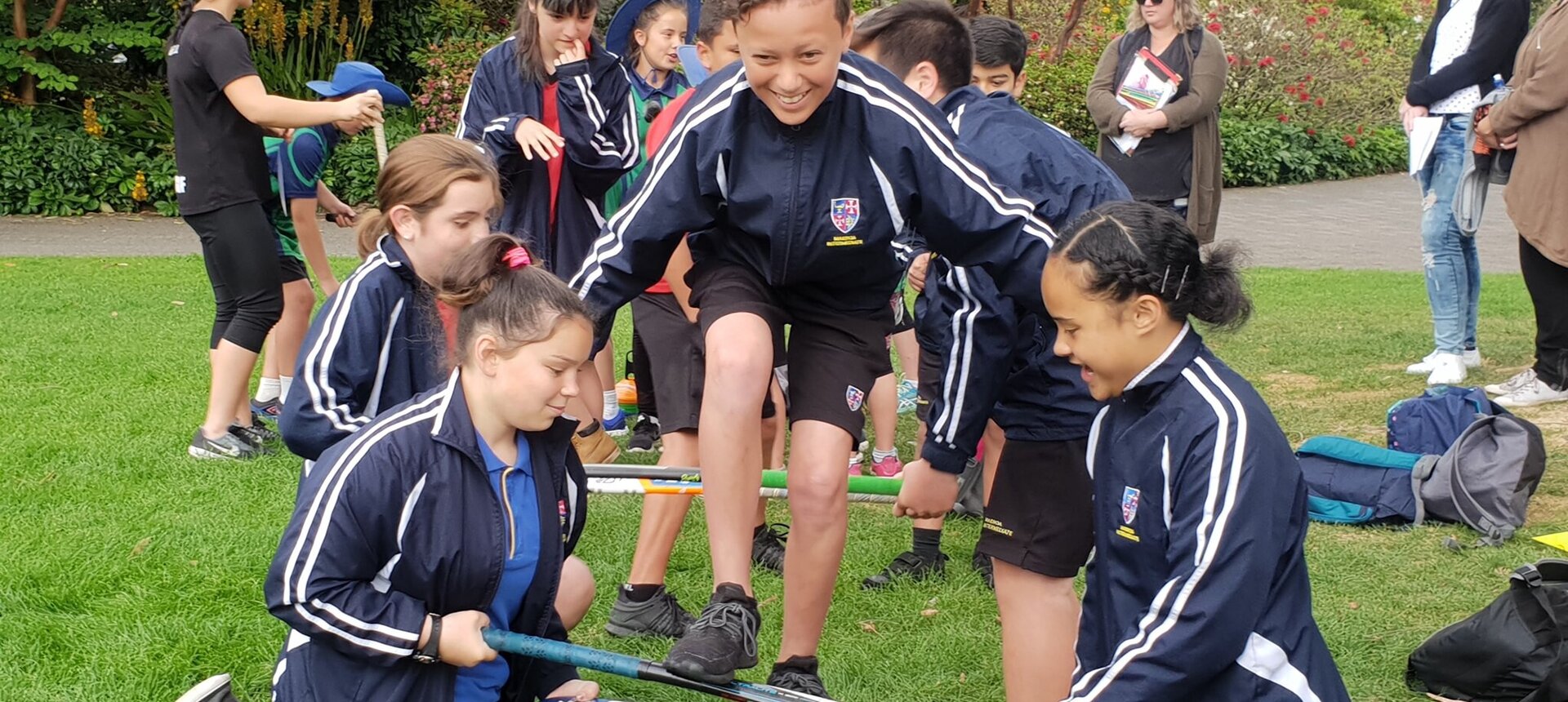Left – The Amazing Race event by WILSS brought together 550 tamariki from the greater Waikato region. It was supported by 80 secondary student volunteers who ran 40 stations. Teams of six rotated through these stations, participating in leadership activities.
Right – Jack Clayton.
When someone like Jack Clayton steps into a leadership role, you know there’s a wealth of experience behind every decision. Since AThankyou Payroll Website pril 2018, Jack has been leading the Waikato Institute for Leadership and Sport Studies (WILSS) as General Manager. But his journey to this position is anything but typical.
Before taking the reins at WILSS, Jack was deeply involved in the sports sector, serving as the Community Hockey Manager for Young People at Hockey New Zealand. His earlier roles included Regional Development Manager for Waikato Hockey Association and Sportsforce Hockey Development Officer for Sport Waikato. Even before diving into the world of sports, Jack spent an impressive 22 years in the Royal New Zealand Air Force.
With such a diverse background, Jack brings a unique blend of strategic thinking, team building, and leadership to his current role. I sat down with him to discuss how his varied experiences—from managing hockey teams to serving in the military—have provided him with unique insights into business management, leadership, and team dynamics.
Crisis Management and Business Resilience
“Charities face tight budgets and the need for transparency, similar to small businesses. How has your experience in managing these financial challenges informed your approach to budgeting and financial oversight at WILSS, and what insights could business owners take from this?”
Coming into this role, I didn’t have previous experience working in a charity, so it’s been eye-opening to understand just how important it is to diversify income sources. We can’t afford to be 100% reliant on community funders, especially since grant funding has been under pressure, particularly since COVID. Right now, areas like food and housing are the focus for community funders, so education and leadership programmes like ours hold a little less priority. This has meant that we have had to get creative in finding other income streams. Networking has been crucial in this process—it’s all about making sure your name comes up when opportunities arise. Another key lesson has been the importance of managing reserves; having at least six months of expenditure set aside can really make a difference in weathering tough times.
Team Building Across Sectors
“You’ve built and led teams in the Air Force, sports, and now in a charity. What key principles of team building and leadership have you found to be universally effective, and how can business owners implement these strategies to enhance their own teams?”
One of my favourite quotes is from Cory Booker: “Leadership isn’t a position or a title; it’s an action or an example.” This idea really resonates with me because it applies to everything. Leading by example is about embodying the values you want to see in others—if you want your team to value punctuality, you need to demonstrate that yourself. It’s also about setting a culture through actions, like showing a growth mindset. I’ve seen this in sports teams, especially in the Olympics, where the New Zealand team always talked about the supportive culture at NZ House and in the athlete village, and it made everything else fall into place in the events. Leadership also involves adapting your style to fit the situation. Coaching high school girls, for instance, is completely different from leading in the military; it’s about understanding people’s needs and figuring out how to bring out the best in them by tailoring your approach to what suits them best.
Crisis Management and Business Resilience
“Handling crises is a critical skill in any sector. Can you share a specific example from your time at WILSS or in your previous roles, and explain how those experiences can guide business owners in building resilience and effectively managing crises within their own organisations?”
The key point in crisis management is to always prioritise your people. It reminds me of the DRABCs from a first aid course—assessing Danger first and taking care of yourself and your people before anything else. Having a solid plan in place, with clear policies, processes, and checklists, is crucial for guiding your actions. When a crisis hits, it’s important to make a quick assessment, create space to think, and develop a measured response plan. Rushing in can often cause more harm than good, so it’s vital to stay calm, look ahead to potential challenges, and avoid panicking. While I haven’t dealt with a major crisis outside of COVID, I’ve faced many incidents where staying calm and following procedures made all the difference. In the military, everyone is trained to know what to do, but outside of that environment, not everyone may have that level of preparedness—this is where having a plan to fall back on becomes essential. The most important thing is to prioritise life and safety, continuously check in with your team, and be aware that someone who seems fine initially might not be later once the adrenaline wears off.
Payroll Management and Compliance
“How do you ensure that your payroll processes are both efficient and compliant, and what advice would you offer to business owners looking to improve their payroll systems?”
Managing a charity’s finances requires meticulous attention to detail and a strong focus on transparency. At WILSS, I handle payroll for six permanent staff and two part-timers, all of whom are salaried employees. For instance, when one of our employees took extended leave for six months, I had to work closely with Thankyou Payroll to ensure accurate leave calculations and discovered the option to turn off payslips for staff on extended leave to avoid generating $0 payslips. This experience underscored the importance of understanding and utilising payroll system features effectively.
Byron Oosthuizen
Marketing Specialist - Thankyou Payroll



